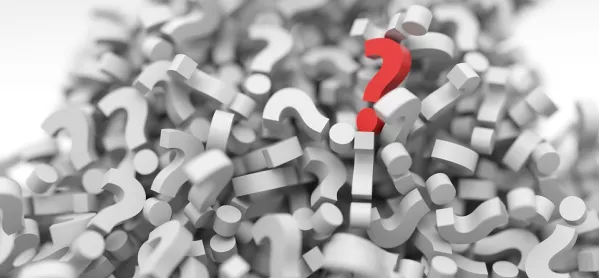- Home
- How to write a really good question
How to write a really good question

I’ve loved quizzes since I was very young, nurtured in part by the school I went to at the age of eight, which had general-knowledge competitions throughout the year. I went on to help develop the thriving quiz scene at Oxford University and took part in numerous quiz shows as a student.
Now, I write questions for several TV shows and have recently taken over the role of question editor for the BBC’s Only Connect.
The best outcome of a quiz question is that the contestant gets it right (which is, crucially, different from knowing the answer), but that they’ve had to go on a bit of a journey to get there. One way to achieve this is to identify a very common piece of knowledge, but with a layer or two to be unwrapped.
“What is the longest month of the year in the UK?” is testing the same knowledge as “In which month do the clocks go back?” but the satisfaction of a correct answer is much greater.
I like “virtual multiple choice”: these are questions with enough information to narrow the answer to a few reasonable possibilities, but without actually presenting the options. It is up to the contestant to work out the small range of possible answers to help them reach an answer.
Here’s another quiz question as an example: which world-famous opera singer has a name that literally means ‘calm Sunday’?
An important quiz-writing technique is to load a question with clues - even if the clues are sometimes very subtle - and the challenge for the contestant is to identify and use the clues to have a good stab at the answer. Make every word count - don’t put in information that doesn’t point towards the answer or give useful context, but try very hard to put in information that does help steer someone in the right direction. A related point is to use extra information to eliminate ambiguity. Multiple clues pointing towards the right answer is a good way to eliminate the possibility of having a question with more than one correct answer.
When writing quiz questions, I have a mental checklist:
- Am I testing something that people might reasonably be expected to know?
- Are there enough clues to point unambiguously towards the answer?
- Will they kick themselves for getting it wrong or feel pleased for getting it right?
- Is there some level of edutainment to be had from the facts in the question?
A quiz question is for the contestant, not for the writer, so it is vital to watch how people respond to them, as this helps you to understand better what works and what doesn’t.
An overlooked skill of question writing is how a set is constructed. I always try to have a good balance of easy, medium and hard, including “know it or don’t” questions alongside more lateral-thinking questions.
I always want to have a wide range of answer types, too, even if the quiz is on a single subject. Inexperienced quiz writers often have far too many answers that are the names of people, but what about places, colours, numbers, letters, dates, objects, company names, and so on? When done well, it makes a quiz far more interesting to play.
It is rare that a set of questions cannot be improved by editing and collaboration. If that sounds like hard work, consider that - in our quest for perfection - every question used on Only Connect will have been looked at about 15 times by eight people.
Jack Waley-Cohen is founder of QuizQuizQuiz, a long-time question writer for television and currently question editor on BBC2’s Only Connect, as well as a regular quiz contestant
This is an extract from an article that appears in the 21 April edition of Tes. Subscribers can read the full article here. This week’s Tes magazine is available in all good newsagents. To download the digital edition, Android users can click here and iOS users can click here
Want to keep up with the latest education news and opinion? Follow Tes on Twitter and like Tes on Facebook
Keep reading for just £1 per month
You've reached your limit of free articles this month. Subscribe for £1 per month for three months and get:
- Unlimited access to all Tes magazine content
- Exclusive subscriber-only stories
- Award-winning email newsletters